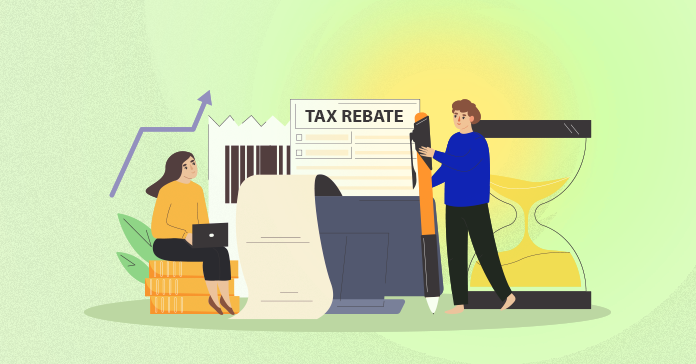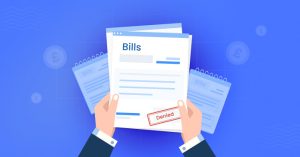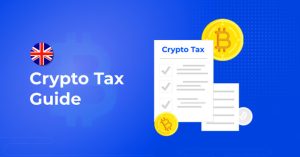Working from home has become the norm for many freelancers, remote workers, and self-employed individuals. What you may not know is that you could be entitled to a £312 working from home self-assessment tax rebate, designed to help offset the cost of working from home. But what exactly is this rebate, and how can you claim it? This guide will break it all down for you, from who qualifies to how you can correctly add it to your self-assessment form.
Here’s everything you need to know to ensure you’re not missing out on this potential refund.
Do I Qualify for Working From Home Tax Relief as A Self Employed?
Before we dive into the details of the £312 working from home tax rebate, it's important to determine if you are eligible for this relief. The good news is that if you are self-employed and have been working from home for any amount of time during the tax year, you could be entitled to this rebate.
The criteria for qualifying for this relief are quite simple:
- You must be self-employed and complete a self-assessment tax return
- Your main place of work must be your home
- You must have incurred additional costs due to working from home (e.g. internet, heating, electricity)
If you meet these requirements, then you could potentially claim back £312 in tax relief
Can You Still Claim £312 for Working From Home?
The much-discussed £312 working from home self-assessment tax rebate isn’t a guaranteed flat-rate refund, but rather derived from the calculation of allowable expenses. This figure is based on claiming up to £6 per week, which adds up to £312 annually.
Here’s the catch:
- It’s not cash directly refunded into your account. Instead, the rebate reduces your taxable income by that amount, resulting in a lower overall tax bill.
- For employees, you must claim for the relevant tax years when you were working from home.
Changes have been made to the working from home tax rebate after the pandemic. For example, as of 2022/23, HMRC tightened rules, and employees can only claim if working from home is mandatory, not voluntary.
If you're self-employed these changes don’t apply, allowing you to continue claiming your relevant home expenses on self-assessment.
How Much Can I Claim on My Self-Assessment for Working From Home?
The amount you can claim depends on several factors, including whether you’re an employee or self-employed. Here’s a breakdown:
Flat Rate Allowance
Employees can claim a flat rate of £6 per week, which totals £312 annually. This allowance is straightforward to claim and doesn’t require you to provide receipts or detailed records.
Actual Costs
If you’re self-employed, you can claim deductions for actual costs incurred by working from home, which includes:
- A portion of your utility bills (electricity, heating, water).
- Internet and telephone costs.
- Home office furniture or equipment (e.g., desks, chairs).
To calculate the exact amount:
- Measure the area of your home used for work.
- Divide the total space in your home to find the proportion used for business purposes.
- Apply this proportion to your total household bills.
For example, if you use one room in a house of five rooms, you can allocate 20% of your utility bills as work-related expenses.
Quick Tip: While calculating exact costs can result in a larger rebate, it requires meticulous record-keeping. The flat-rate allowance is quicker and easier but may not cover all your expenses fully.
How Do I Add Working From Home Expenses to Self-Assessment?
To claim a £312 working from home tax rebate as a self-employed professional, here’s a quick guide on what documents to provide to your accountant:
1. Records of Utility Bills
Provide copies of your utility bills (electricity, gas, water, internet) to show your home office running costs. These will help calculate the proportion of household expenses used for business purposes.
2. Workspace Details
Share information about your home office setup. For example:
- The dedicated workspace area (e.g., spare room or desk space).
- Total size of your home, so the business use percentage can be calculated.
3. Receipts for Office Supplies and Equipment
Include receipts for any office-related purchases, such as stationery, furniture, or equipment used exclusively for work.
4. Business Hours Log
If possible, provide an estimate or record of how much time your home is used for business purposes each week. This can support the calculation of your claim.
5. Previous Claims (if applicable)
If you’ve claimed a working from home allowance before, let your accountant know, as it may impact your current claim.
6. Proof of Income
Ensure your accountant has access to your self-employment income records, as this may be required when submitting your self-assessment.
Once you’ve gathered these documents, your accountant can handle the calculations and submit the claim for you through your self-assessment. Always keep copies of these records for future reference or potential HMRC audits.
Can I Claim Utility Bills When Working From Home?
Yes, both employees and self-employed individuals can claim a portion of their utility bills, but the method of claiming differs:
You can claim precise proportions of your utility bills based on the space and time you use your home for work. This includes:
- Heating and Electricity: Calculate the proportional amount used for work.
- Water Costs (if significantly impacted by your work, such as if you operate a car-washing business).
- Broadband or Internet (for work-specific use, not entertainment).
- Council Tax (if applicable).
Remember, thorough documentation of your working hours and usage is essential for claiming these costs.
Reminder: You cannot claim mortgage payments or rent as part of your home office expenses, but you might be able to deduct a portion of interest or rent costs based on your workspace usage.
Final Words — Save Money While Working From Home
Navigating taxes can be overwhelming, but understanding your entitlement to the £312 working from home self-assessment tax rebate can be a game changer for your finances. Whether you’re an employee, freelancer, or sole trader, utilizing these rebates can seriously lighten the financial burden of working from home.
Ensure accuracy in your self-assessment submissions and keep detailed records of your expenses. This simple step can help you avoid disputes with HMRC and give you a financial boost.
Maximize your potential savings today—because every penny counts when you’re running your business from the comfort of home!













